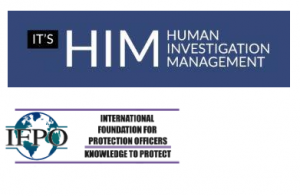There are some countries that are within days of entering a state of anarchy which will deliver unimaginable consequential collateral damage. Using the term ‘unimaginable’ is because, now more so than ever, desperate people will do desperate things which they would never think of doing before.
There are many slum cities besides poor people living in villages, towns and cities. These people are massed together that live, eat, and transport together. They are inter-dependent on each other besides dependant on menial jobs paying them daily or weekly. It would be impossible for them to lockdown for 21 days and starve to death. Their situation would drive them to acts of desperation.
Also, there are invisible people working in high-risk sites who are the foundation of support services that keep the system alive. For example, people applaud the surgeons, doctors and nurses but what about the cleaners, cooks and maintenance workers who keep the hospitals running? When one or more get ill, the entire chain of support may need to be re-manned, but the re-training time impacts the smooth running of the system.
Furthermore, multi-national corporate companies may have globally located partners or branches therefore dictating that what happens in one country will impact another.
The following may sound not applicable to practitioners in some countries however, the situation would be time dependent on finding of a cure.
Situation
- Increased numbers of starving people due to loss of jobs
- People desperate for medicines, protective clothing and equipment
- Many will be desperate for protective gear depending on their location for security
Coronavirus creates need for temporary security officers in Midwest
Implications
- Mob attacks on warehouses stocking food and medicines or outlets for such located in malls, shops, hospitals, pharmacies or old-aged nursing homes or even shops on the streets.
- Attacks of logical supply chain of food and medicine
- Increased home invasions
- Many more weaponized people without training
- Increased perimeter protection equipment and manpower
- Many more people suffering from emotional or mental disorders
Problems
- It is doubtful that countries can afford to mass feed or house the many. Once people starve, especially their children, then, their reaction would be hostile.
- The covid-19 pandemic is similar to the previous SARS threat but, the SARS was easier to cure. Even though some human trials have begun, it is unknown when an antidote will be discovered, obtain approval, manufacture and distribute.
Limiting the collateral damage
Considering the term that security success to limit the collateral damage of the virus on people and assets will depend on the level of situational awareness of the people on the ground and their reaction speed.
Situational Awareness: the knowledge to identify a person of interest or a group working in concert. One must heighten situational awareness using equipment, technology and manpower.
- Technology and Equipment
Temperature/Fever detection using CCTV or Handheld thermometers will detect an infected person
IFPO offers discount on ISOP program amid coronavirus concerns
One cannot bank on facial recognition as people will wear masks. Some facial recognition technology is deriving disappointing results because of the masks (https://ipvm.com/reports/face-masks). The combination of both temperature/fever and facial would be best for certain applications if one does not have handheld thermometers.
People on the ground making decisions
- Manpower: It is vital that manpower must be quickly trained with skills that are relevant to the new threat. Comprehending the narrative, it is possible that the manpower on the ground could be dealing with volatile behavior.
The officers on the ground must have the character traits that are balanced with empathy and ego drive. A highly aggressive and reactive person is not a good choice for first interaction with the public. This threat also dictates that the people on the ground will experience issues they know and do not know. For example, they may have been trained not to take action but, to summon their superiors. Making decisions and reaction speed for pandemic security demands fast decision making and actions to be taken.
- The Manpower must be able to identify a person of interest and to determine if they are working in concert with others either voluntarily or under duress to mitigate loss prevention. Therefore, lie, deception detection and critical situational interviewing are the relevant skills (HIM)
- Subsequently, some practitioners may need to be familiar with crime culture, criminal methods and behavior.
- Bias impacting decision-making. Bias towards any size, color, religion of a person could be misinterpreted which could add fuel to the fire of violent behavior.
- Cultural considerationsA person that is biased will naturally display their emotions in their tone of voice and body language, which will instinctively obtain a negative reaction by another person to the extent of a hostile and physical reaction. This could also lead to a person misinterpreting or being misunderstood by another culture and providing an unreliable reading to the practitioner. This calls for practitioners to be properly trained with lie and deception detection using critical situational interviewing taking cultural behavior into account. For handling conflict or violent behavior, the practitioner must be culturally aware (conduct and behavior) so that they do not over-react or make decisions based on bias
Certified Protection Officer Instructor: A viable option for former military/law enforcement
Reaction Speed
Reacting to late will invite collateral damage. It is recommended that when a person that has been flagged with a high temperature then the protocols mentioned below must be used. As a matter of fact, unlike investigation scenarios where reaction speed must be purposely timed, for pandemic security reaction speed is paramount from the person in charge down to the practitioner on the ground.
Protocols for Action
When identifying the Person-of-interest using temperature/Fever detection
- We must consider that people are now perhaps 'weaponized' with covid-19 and therefore, precautions must be considered
- Approaching the person must only be by properly protected trained staff
Psychological Considerations
-
- Consider that the person that is infected could affect others within 1.5m (+3ft) to 2m (6ft) and, also know that the eyes and mouth could be entry points for the virus.
- Subsequently, staff must use eye-goggles or face shields with masks when approaching a person of interest.
- If there is resistance by a person-of-concern, then the practitioner may consider if correctly trained to detain the person of concern and must alert the authorities as soon as possible (Each sector has its own recommended protocols. Contact HIM for discussion)
- Consider that the person that is infected could affect others within 1.5m (+3ft) to 2m (6ft) and, also know that the eyes and mouth could be entry points for the virus.


